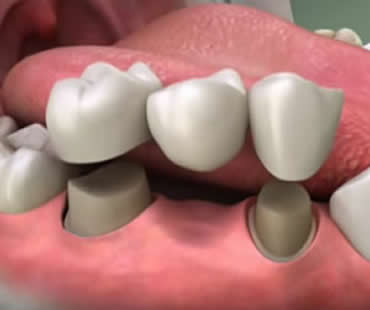
A number of serious health problems like cancer are linked to smoking, but your oral health is also at risk from using tobacco. Your teeth can be severely stained, turning them yellow or brown, and your lips can become darker too. Smokers have a higher risk of tooth decay, and bad breath is nearly inevitable. The negative outcomes of smoking continue to worsen the longer you keep doing it, so it’s highly advisable to kick the habit. However, as most smokers can attest, giving it up is not easy. Here are some tips that may help you quit smoking.
Make a list
Create a list of the reasons you’d like to quit smoking, and look at it often to remind you of your goals and the benefits you’ll achieve. These may include things like improving your overall health, restoring your smile, making loved ones proud of you, and even saving money.
Choose a date
Select a date on the calendar to stop, and stick to it. Having a concrete target can help you focus on the challenge ahead.
Ask for help
The support and encouragement from others can be a huge part of quitting smoking. Tell your family and friends about your goal, and allow them to play a part in accomplishing it.
Occupy your mouth
Sucking on sugarless candy or mints can keep your mouth busy, so you’ll be less inclined to put a cigarette in it. Chewing sugar-free gum is another great remedy for the urge to light up.
Keep busy
Try to find things to occupy your time and mind so that you aren’t constantly thinking about smoking. Take up a new hobby that involves both your mind and your hands so that you are busy with other, more beneficial, activities than puffing on a cigarette.
Our dental office is located in Meriden

About 20 million Americans have been diagnosed with asthma, a long-term lung disease that causes swelling and narrowing of the airways. The condition has been linked to oral health, with patients having increased risk for cavities, gum problems, and bad breath.
One of the main culprits negatively impacting an asthma patient’s oral health is the medication required to treat the condition. Some medicines, such as corticosteroids, decrease the flow of saliva. This leads to dry mouth, which in turn can increase cavities and bad breath. Dry mouth is worsened by the fact that many asthma patients breathe through their mouth. Inhaled steroids can also increase the risk of thrush, which is caused by an overgrowth of yeast in the mouth.
Here are some tips for keeping your mouth safe while still controlling your asthma:
- Make sure your dentist is aware of your condition, as well as all medications that you are taking.
- Rinse your mouth with water or a fluoride mouthwash after using your inhaler.
- Consider using a spacer device with your inhaler, which will spray the medication directly into your throat and avoid some of the direct risks to your mouth.
- Bring your inhaler with you to dentist appointments, both to show it to your dentist and to have your medication available in case you experience an asthma attack at the office.
- Ask your dentist if more frequent dental visits are recommended in your case.
- Inquire about adding fluoride supplements to your routine, especially in areas where the water is not fluoridated.
- Maintain good brushing and flossing habits.
If you need a dentist in Meriden contact us today

Fun in the summer sun can cause unpleasant side effects such as cold sores and fever blisters. Brought on by herpes simplex virus type 1 (HSV-1), cold sores and fever blisters are transmitted from person to person by saliva or by skin contact. With cold sores, you generally develop clusters of tiny blisters on the lip. Most people are exposed to HSV-1 before age 10. After the first infection, the virus remains inactive until stress, illness, or sun exposure causes a new outbreak.
During the first exposure, you may have headache, nausea, fever, and/or vomiting. Patients may also have painful swelling and open mouth sores. Most of the time, cold sores or fever blisters appear on the edges of your lips. Usually, these outbreaks start with tingling or burning followed by swelling or redness. One or more blisters will typically appear within 24 to 48 hours.
Initial symptoms can last for 7 to 14 days. When the cold sores or blisters reappear, they generally crust over in about four days and then heal within 10 days. You may want to visit your doctor or dentist the first time you develop cold sores or fever blisters, but after that, you shouldn’t need medical attention. Keep the area clean and apply topical medication to lessen symptoms as well as promote healing.
Preventing a first infection for loved ones involves making sure that no one with an active fever blister kisses your kids or other family members. Sunscreen can help protect your lips from cold sores brought on by too much time in the sun.
Dentist in Meriden

There are times when a tooth is so damaged from decay, trauma, or cracking that a filling isn’t the best choice. In these cases, a dental crown may be recommended for long-term tooth health. If a tooth is missing completely, your dentist may suggest a dental bridge to fill the gap between two bordering teeth.
Dental crowns, or “caps,” completely cover and protect your damaged tooth. It is bonded in place, giving you a stable, strong, and attractive alternative for your original tooth. Because it is customized for you using impressions your dentist makes of your teeth, it is a perfect match in size, shape, and position to your natural tooth.
Dental crowns can be the perfect solution to a severely damaged tooth. You won’t need to worry about pain, tooth stability, or your appearance when you choose a dental crown. Depending on what material is used, your crown can look as natural as your own tooth.
Dental bridges are designed to span a gap caused by a missing tooth. Having a gap in your smile can affect you in more ways than just cosmetics. Chewing and talking can become problematic as teeth adjacent to the gap begin to shift, leaving the potential for gum disease or jaw issues.
Dental bridges literally bridge the gap between two teeth. They are cemented onto the pair of teeth that border the empty space vacated by one or more missing teeth. The bordering teeth act as anchors for the bridge, and are trimmed down to hold a dental crown. Between the two crowns is a replacement tooth, customized for you by your dentist. Once the bridge is in place, you will regain the ability to smile freely while the bridge maintains the shape of your face and lips. You will speak more clearly and be able to eat a greater variety of foods. A dental crown also protects your healthy teeth from issues related to bite alignment.
Dental crowns and dental bridges are excellent choices for overall dental health, and can last a lifetime. To prevent damage to your dental work, avoid chewing things like ice or hard candy. It is also important to maintain regular dental checkups.
We offer dental crowns at our Meriden dental office

Gone are the days when chewing gum is considered poor etiquette. In today’s society, you can find people chewing gum in business meetings, church, and just about every other situation. With gum chewing so prevalent, you may have wondered what it’s doing to people’s teeth. You may be surprised to learn that research shows that chewing sugarless gum has a number of dental benefits. Let’s see how it can actually be a helpful addition to your oral care routine.
Saliva flow
Chewing sugarless gum increases the flow of saliva in your mouth, which rinses away food particles. Saliva also neutralizes acids that result from bacteria in your mouth that can lead to tooth decay. Known to carry with it calcium and phosphate, increased saliva flow also helps strengthen your tooth enamel.
ADA acceptance
Choose gum with the American Dental Association (ADA) Seal, indicating it as met the required safety and effectiveness criteria. This approval means that you can trust the gum’s packaging and labeling to be true.
Sugarless
The only gums carrying the ADA Seal are sugarless. They contain sweeteners that don’t cause cavities, like aspartame, mannitol, sorbitol, or xylitol. Chewing gum with xylitol is especially recommended, because it has been shown to combat tooth decay and cavities.
Dental hygiene
Even though chewing gum can be beneficial, remember that brushing and flossing are still the best ways to care for your teeth. Brush twice a day with fluoride toothpaste, and floss every day to remove plaque and debris between your teeth. Between these dental hygiene tasks, however, it is acceptable to chew sugarless gum to continue caring for your mouth during the day.
If you live in the Meriden area contact us today

Severely damaged, injured or diseased teeth can lead to not only cosmetic problems with your smile, but also functional ones. Your dentist may recommend dental crowns or dental bridges to treat your dental issues.
Dental crowns are a restorative dental therapy that covers the affected tooth completely, serving as the new outer surface of the tooth. A dental crown maintains the natural roots of a tooth and can prevent extraction. A dental bridge fills the gap left by one or more missing teeth and is affixed to bordering teeth with an anchoring crown.
Both dental crowns and dental bridges are made from a variety of materials that can be designed to match the color of your surrounding natural teeth. As opposed to removable prosthodontics such as full or partial dentures, dental crowns and bridges are permanently bonded to existing teeth or dental implants, allowing them to function and appear as natural teeth.
Dental crowns and bridges have a number of advantages and benefits, such as:
- Dental crowns protect the natural tooth after a root canal therapy, helping to prevent bacteria re-infecting the tooth that could lead to extraction.
- Dental bridges restore gapped or missing teeth, providing support to the surrounding teeth, preventing them from shifting in to fill the empty space and affecting your speech, bite and smile.
- Your dentist can typically place dental crowns and bridges in as few as two appointments.
- Dental crowns and bridges are both long-lasting, durable therapies, designed to protect your natural tooth for years to come.
- Dental crowns prevent bone loss by preserving the natural tooth roots, thereby stimulating the jawbone, preventing resorption, or shrinkage, of the bone following extraction.
If you have questions about what a dental crown or bridge can do to improve the form and function of your smile, talk to your dental professional today. You can restore your healthy smile and preserve it for years to come with a dental crown or dental bridge treatment.
We treat patients from Meriden and the surrounding area














